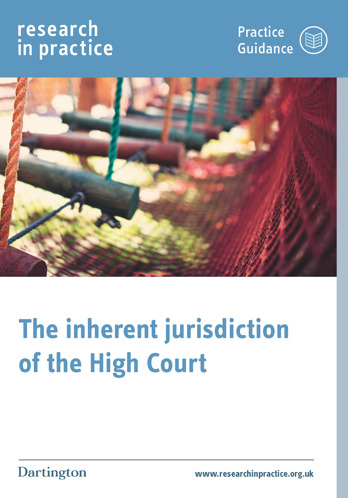The inherent jurisdiction of the High Court: Practice Guidance (2020)
Introduction
This publication aims to support good quality decision-making in adult social care and safeguarding by answering the following questions:
1. What is the inherent jurisdiction?
2. What types of scenarios might the inherent jurisdiction cover?
3. Who is ‘vulnerable’ for the purposes of the inherent jurisdiction?
4. What types of orders might be sought in an application under the inherent jurisdiction?
5. When will the court not use the inherent jurisdiction?
6. What steps should be taken before using the inherent jurisdiction?
7. What are the key practice and ethical challenges and how might these be overcome?
• What is the intersection between the inherent jurisdiction and other legislation, especially the Mental Capacity Act 2005 (MCA)
• Whether the inherent jurisdiction can ever be used to authorise a deprivation of liberty.
Professional Standards
PQS:KSS - Person-centred practice | Safeguarding | Mental capacity | Direct work with individuals and families | Professional ethics and leadership | Supervision, critical analysis and reflection | Values and ethics | Influencing and governing practice excellence within the organisation and community | Developing confident and capable social workers | Assuring good social work practice and development | Promoting and supporting critical analysis and decision-making
CQC - Safe | Caring | Effective
PCF - Values and ethics | Rights, justice and economic wellbeing | Critical reflection and analysis | Intervention and skills | Contexts and organisations | Professional leadership
RCOT - Service users | Identify needs | Collaborative | Support development
This publication is a premium resource
Access the full publication with a one-off purchase or enjoy the benefits of membership.

